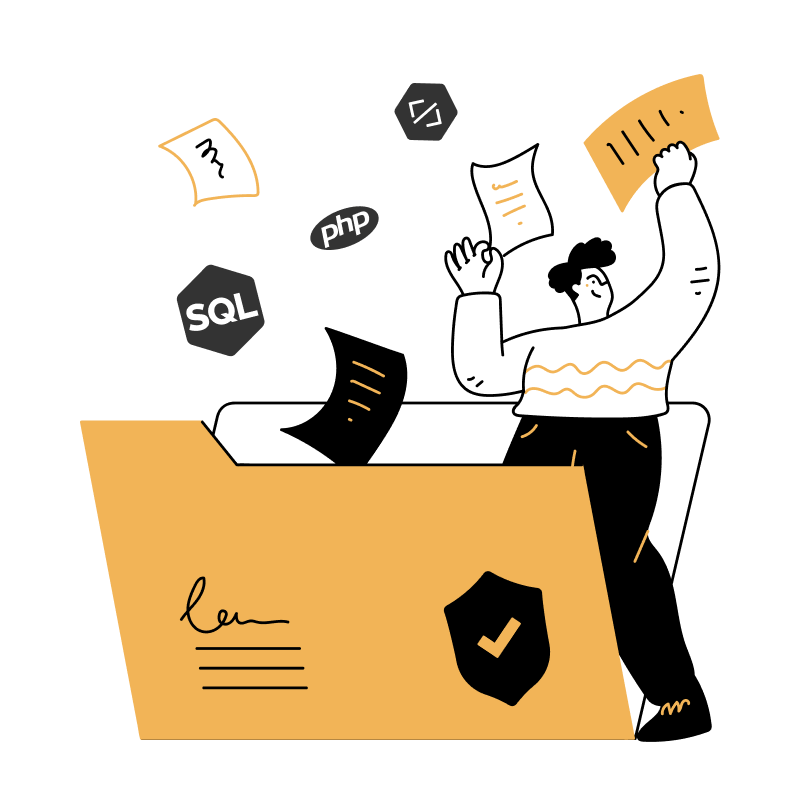Job title: Full stack developer
Location: [Specify location]
Job type: [Full-time/Contract/Remote]
About the role:
As a full-stack developer, you'll be an important part of our web application development and maintenance team. At [Your Company Name], your full-stack developer responsibilities and duties will include:
- Designing and implementing user-friendly web interfaces
- Developing and maintaining server-side applications
- Managing databases and optimizing their performance
- Debugging and troubleshooting issues to ensure seamless functionality
- Ensuring application responsiveness
- Ensuring cross-platform optimization of web applications for mobile devices
- Keeping up with the latest developments in web application technology
- Developing back-end web applications
- Developing front-end web architectures
Required full-stack developer skills
- Proficiency in front-end technologies: Full stack developers should be well-versed in front-end technologies like HTML, CSS, and JavaScript. These languages form the foundation of web development, and they are crucial for creating the user interface and user experience of web applications.
- Experience with popular front-end frameworks and libraries: To stay competitive in the field, having hands-on experience with popular front-end frameworks and libraries like React, Angular, and Vue.js is essential. These tools streamline the development process, enhance user interfaces, and enable efficient handling of user interactions.
- Strong knowledge of server-side programming languages: Full stack developers should have proficiency in server-side programming languages to build the back-end of web applications. Familiarity with languages such as Node.js, Python, and Ruby is essential. These languages empower you to develop the server-side logic, APIs, and database interactions required for robust web applications.
- Database management skills: Full stack developers often work with databases to store and retrieve data efficiently. You should have expertise in both SQL and NoSQL databases. SQL databases like MySQL and PostgreSQL are most suitable for structured data, while NoSQL databases like MongoDB are perfect for handling unstructured data.
- Version control using Git: Collaboration and code management are integral to modern development workflows. Proficiency in using Git allows developers to track changes, collaborate with team members, and ensure the stability of your codebase, ultimately helping you achieve version control.
- Familiarity with web servers and deployment processes: Understanding how web servers operate and how web application deployment works is fundamental. You should be familiar with web server configurations, such as Apache or Nginx, and understand deployment processes in order to ensure that your applications run smoothly in production environments.
















